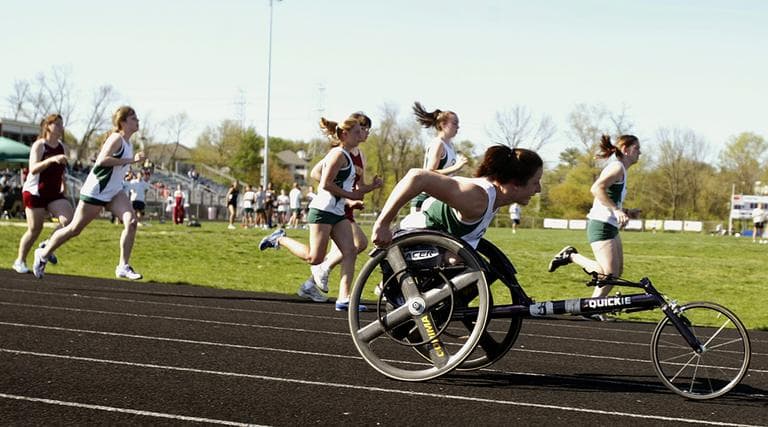Advertisement
U.S. Says School Sports Are A Civil Right For Disabled
Resume
The U.S. Education Department is telling schools that they must make "reasonable modifications" to accommodate students with disabilities on sports teams, or create a parallel athletic program.
The directive is the biggest change since Title IX mandated equal athletic opportunities for women, and it comes after years of work by a coalition of athletes and advocates.
But it started with a young wheelchair athlete from Maryland, Tatyana McFadden, who was born with spina bifida and is paralyzed from the waist down.
When McFadden was 15, she won a silver medal in the 100-meter and a bronze in the 200-meter in the 2004 Paralympics.
But it wasn't until she won a lawsuit later that she was allowed to race on her high school track team.
- What do you think about the directive to accommodate disabled student athletes? Let us know in the comments or join the debate on our Facebook page.
Guest:
- Tatyana McFadden, Olympic wheelchair racer.
This segment aired on January 25, 2013.